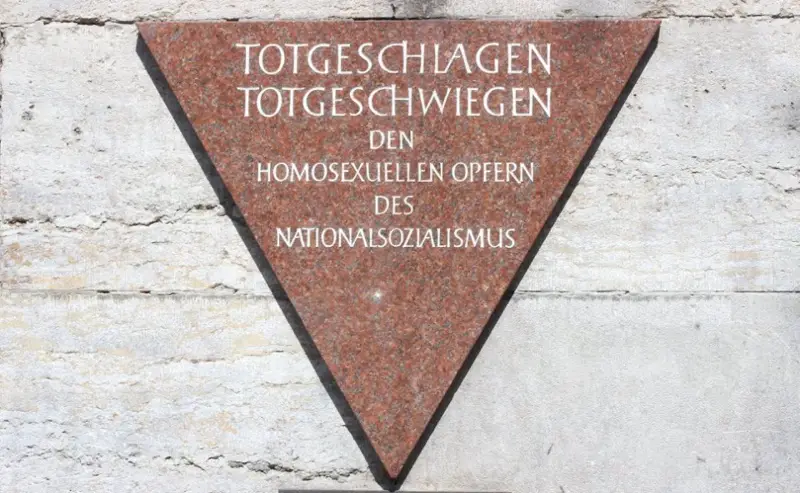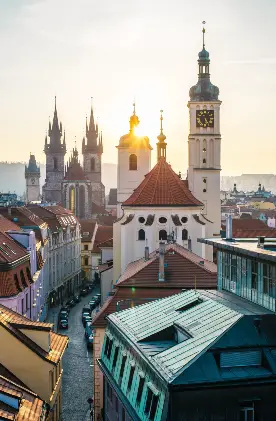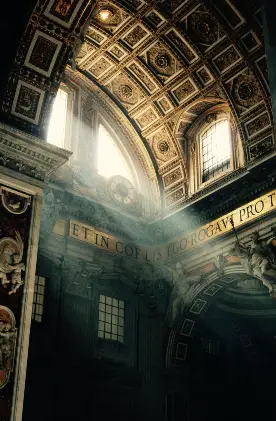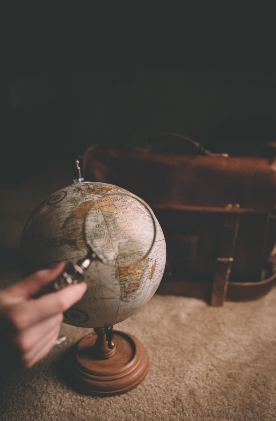Berlin is one of the world’s great cities, a place with a tangible sense of history. In addition to its glamorous and gritty architecture, and famously good food and nightlife, the capital of Germany has played a pivotal role in societal change over the years – none more prominent than LGBTIQ+ rights. Today, the rainbow flag waves proudly on the streets of Berlin and diversity is celebrated. But it wasn’t always a hub of progressive culture.
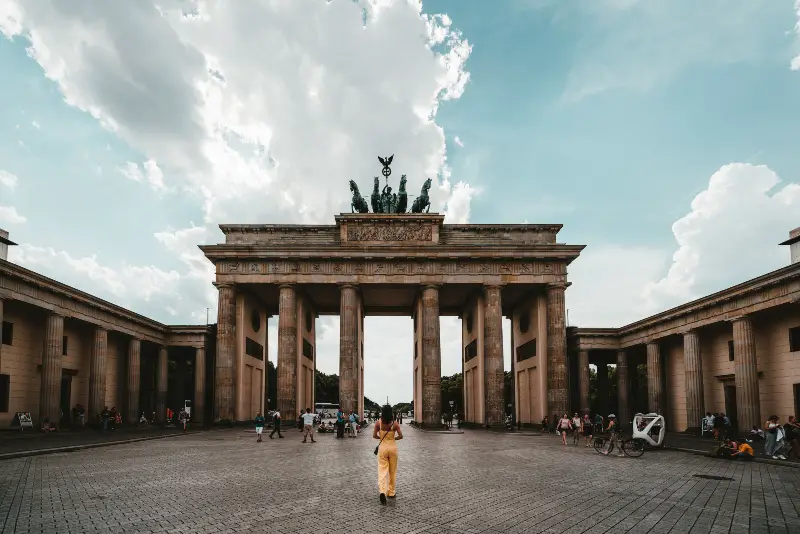
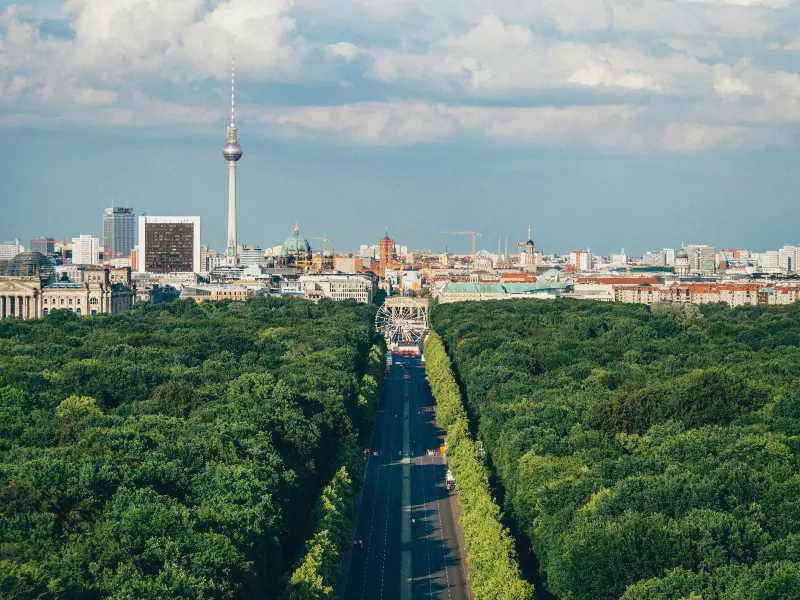
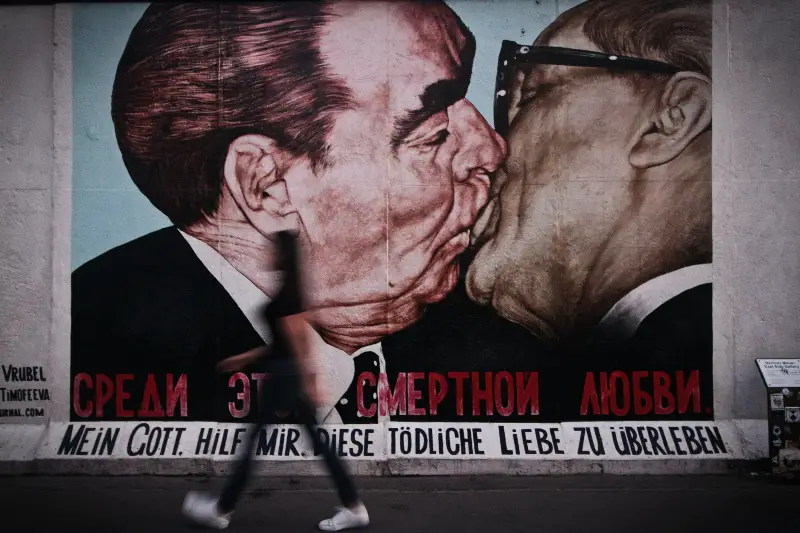
Tumultuous Past of Berlin’s LGBTIQ+ Community
Berlin’s journey towards LGBTIQ+ acceptance has been remarkable. The city has a complex history, marked by a tumultuous past and a resilient spirit. During the 1920s, when Germany was known as the Weimar Republic, Berlin experienced a period of social liberation. It was a sanctuary for the LGBTIQ+ community with gay bars, clubs and cabarets flourishing. However, this era was tragically cut short with the rise of the Nazis.
Under Nazi rule, the LGBTIQ+ community faced intense persecution with the regime actively targeting and criminalizing homosexuality. Many individuals were imprisoned, subjected to horrific abuse and sent to concentration camps. It wasn’t until decades later – during the 60s, 70s and 80s – that Berlin became a focal point for LGBTIQ+ rights once again. Many milestones paved the way for the rights now enjoyed by the community.
During the Golden Twenties, a groundbreaking institution called the Institut fur Sexualwissenschaft (Institute of Sexual Research) was established by Dr. Magnus Hirschfeld, who advocated for LGBTIQ+ rights and conducted research on sexuality. However, when the Nazis took power, the institute was destroyed – its documents burnt in the streets by youth brigades. In fact, many LGBTIQ+ spaces were attacked by the Nazis.
Important Milestones in the Fight for Equality
After the defeat of the Nazis in WWII, the fight for LGBTIQ+ rights regained momentum. The 1960s witnessed the birth of a renewed LGBTIQ+ spirit. Activists, inspired by civil rights movements in America, began demanding an end to discrimination. The 1970s saw the formation of LGBTIQ+ organizations, including Germany’s first gay liberation organization called Homosexuelle Aktion Westberlin (Homosexual Action West Berlin).
The movements during this time laid the foundation for Berlin to become a more inclusive city. Activists and citizens of every background rallied together to demand equality. Another key milestone was the founding of Germany’s first gay museum, the Schwules Museum, in 1985. It turned into a crucial space for preserving and showcasing the history and struggles of the LGBTIQ+ community. This all occurred in the backdrop of the Cold War.
Once the Berlin Wall fell, and the East was unified with the West, LGBTIQ+ rights went from strength to strength. In 2001, Germany enacted laws to allow same-sex partnerships – which then evolved into the legalization of same-sex marriage in 2017. This milestone, coupled with growing LGBTIQ+ visibility, set the stage for Berlin to transform into one of the most tolerant places on earth for gays, lesbians, bisexuals, transgenders, etc.
Today Berlin is a Leading LGBTIQ+ Destination
Berlin’s reputation as an LGBTIQ+ haven is well-deserved. The city boasts a lively scene with countless gay bars, clubs and events catering to all tastes. The neighborhoods of Schoneberg, Kreuzberg, and Friedrichshain are renowned for their LGBTIQ+ establishments – offering everything from cozy pubs to iconic nightclubs that redefine the concept of nightlife. Gay travelers who visit Berlin are spoiled for choice on where to go.
Moreover, Berlin hosts one of the largest Pride parades in Europe, known as Christopher Street Day. The event has been held in some fashion every year since its inception in 1979 and it attracts visitors from all over the world. The city’s commitment to inclusivity is further reflected in its numerous LGBTIQ+ film screenings, art exhibits and community centers. Berlin has blossomed into a cosmopolitan city where the LGBTIQ+ community thrives.
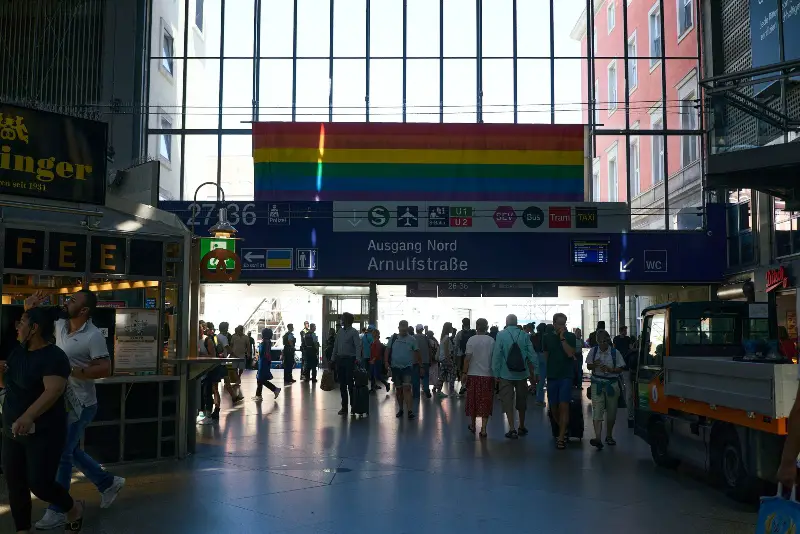
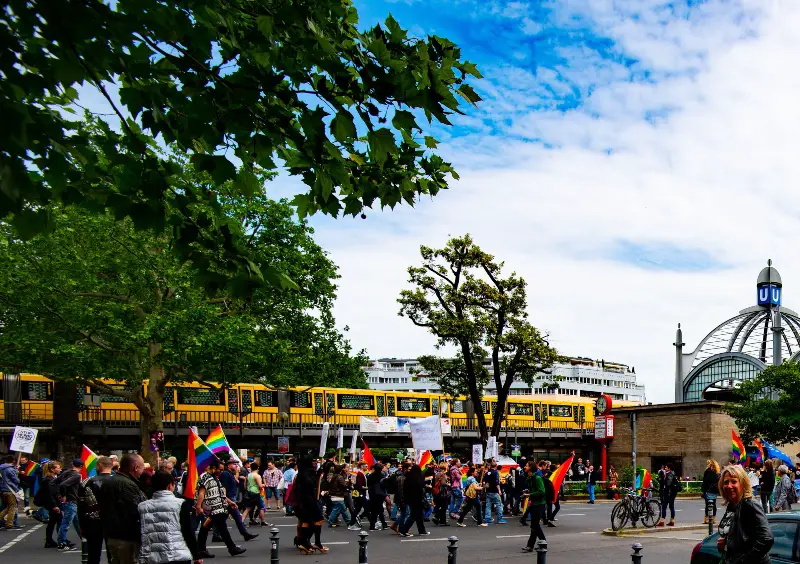
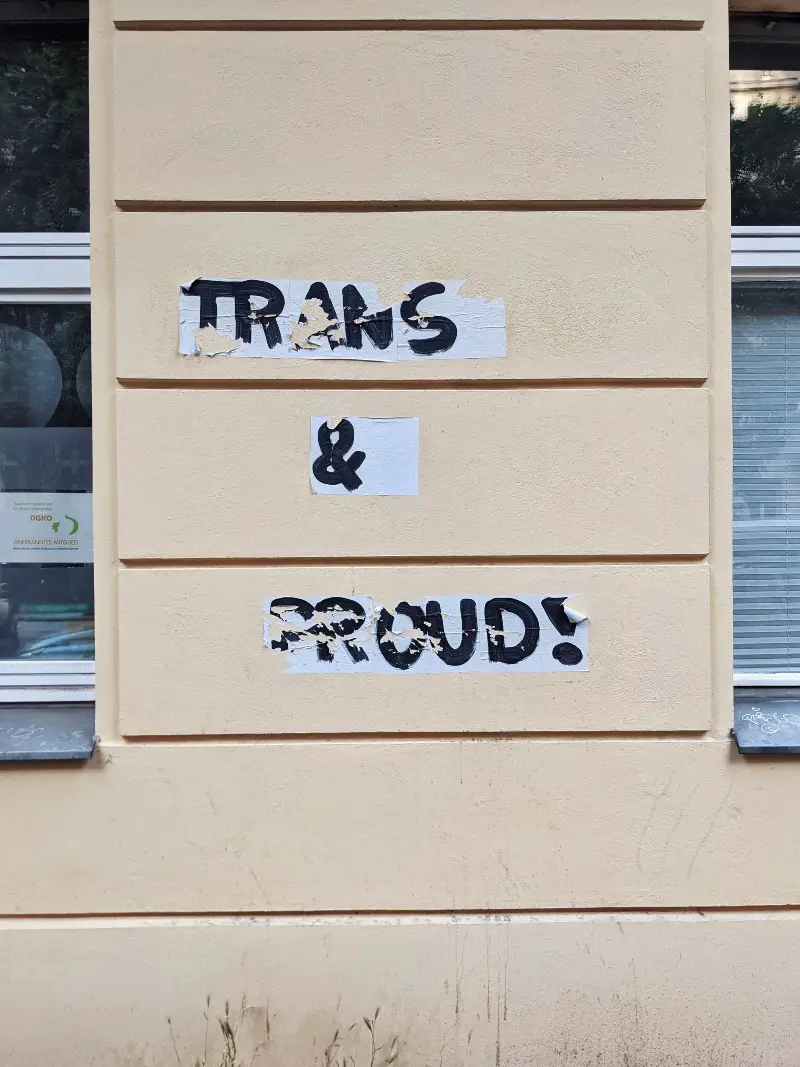
Best LGBTIQ+ Berlin Tour: Book with Finn Ballard
When it comes to experiencing the best of Berlin’s LGBTIQ+ culture, the LGBTIQ+ Berlin Tour with Finn Ballard Tours is an absolute must. Finn Ballard, a historian and tour guide from Ireland, has curated an immersive journey that showcases the city’s LGBTIQ+ landmarks and hidden gems. The tour takes place in the Schoneberg district and tracks the persecution, repression and regeneration that the LGBTIQ+ community faced.
With Finn guiding the way, and sharing his in-depth knowledge, you will have the opportunity to discover one of the world’s first urban gay villages, learn about 1920s nightlife, hear stories of early Queer activism and get all the info on Dr. Magnus Hirschfeld’s institute. Finn’s personalized approach ensures that each tour group feels welcome – fostering an environment where questions are encouraged and conversations flow freely.
This tour is transformative and captures the essence of Berlin’s LGBTIQ+ scene – combining historical insights, cultural peculiarities and community connections. And by no means do you need to be part of the LGBTIQ+ community to participate. As long as you are curious about history and appreciate inclusivity, then this tour is for you. Below is a summary of the highlights you will experience on this LGBTIQ+ Berlin Tour with Finn:
- Familiarize yourself with Berlin’s lesbian scene in the 1920s
- Listen to stories about transgender pioneers such as Lili Elbe
- Visit the Eisenherz bookstore, Germany’s first Queer bookshop
- Hear tales of the world’s first LGBTIQ+ emancipation movement
- Get to know the history of Gad Beck, a gay Jewish resistance fighter
- Wander down Motzstrasse Street where contemporary gay life thrives
- Learn about Dr. Magnus Hirschfeld and his Institute of Sexual Research
- Visit the original home of Christopher Isherwood, an American novelist whose best-known writings inspired the musical Cabaret
- Gain an understanding of the LGBTIQ+ oppression that occurred during the Nazi era and the activism that characterized the Cold War.
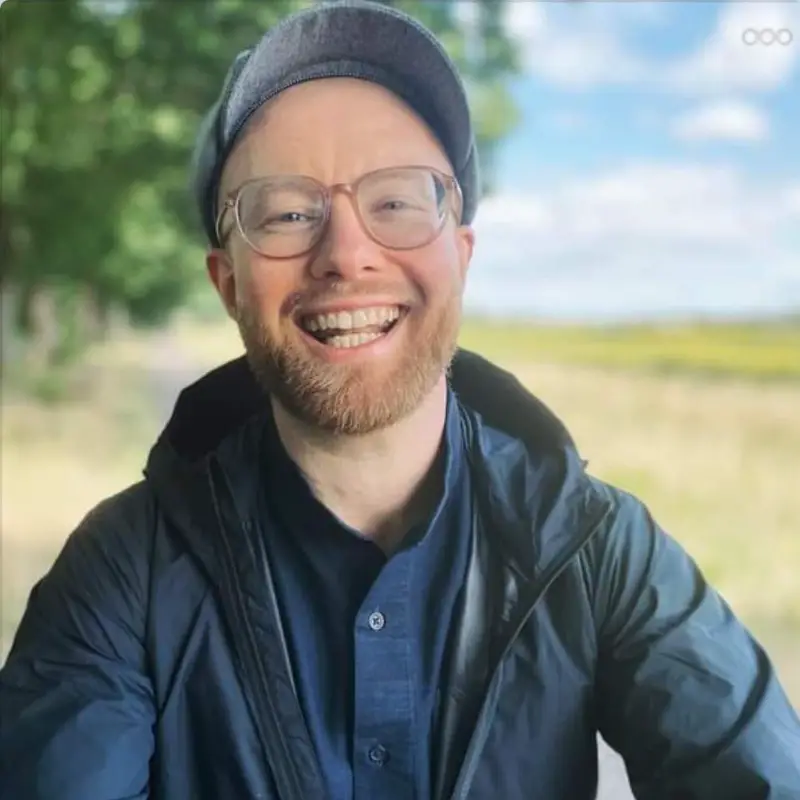
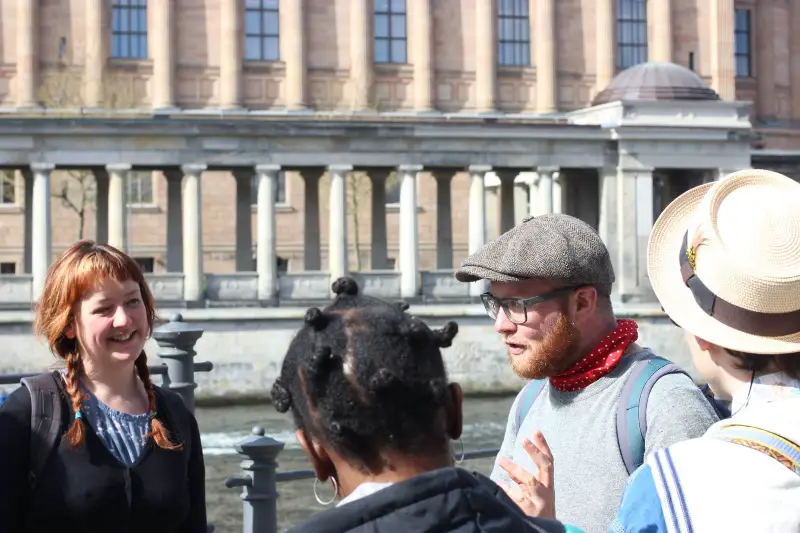
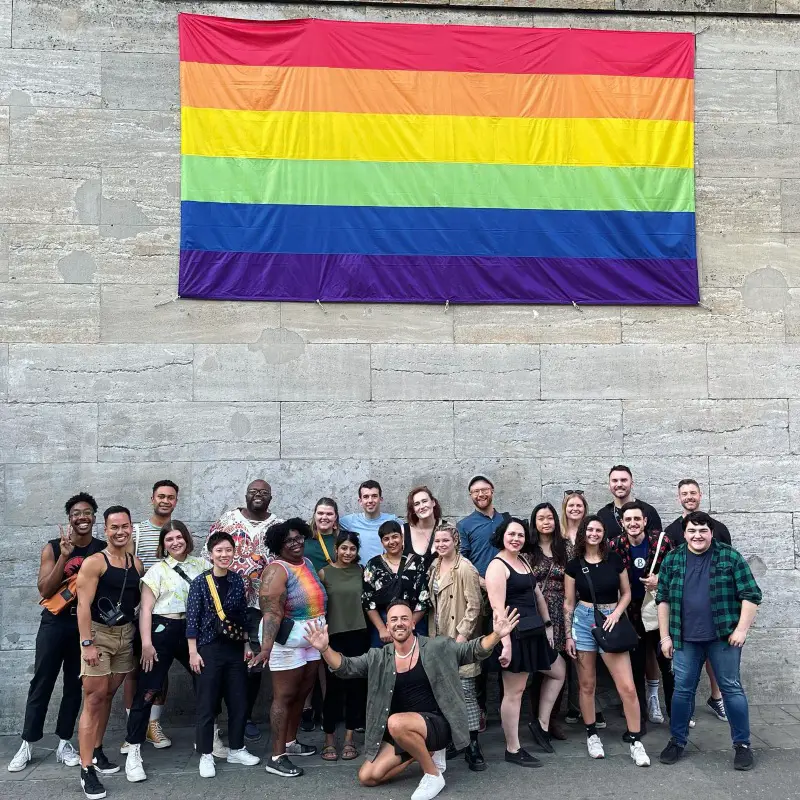
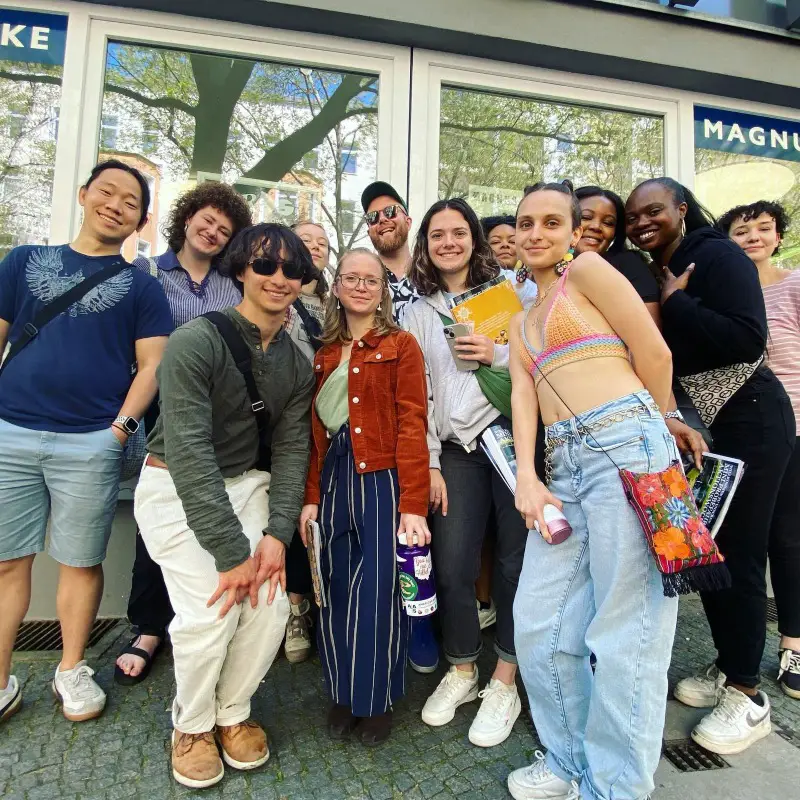
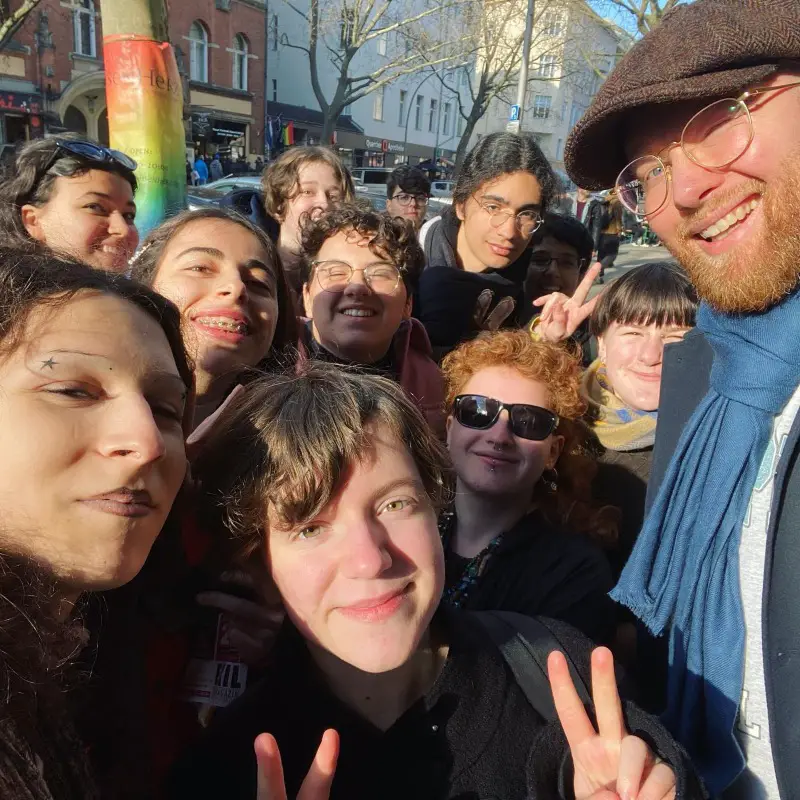
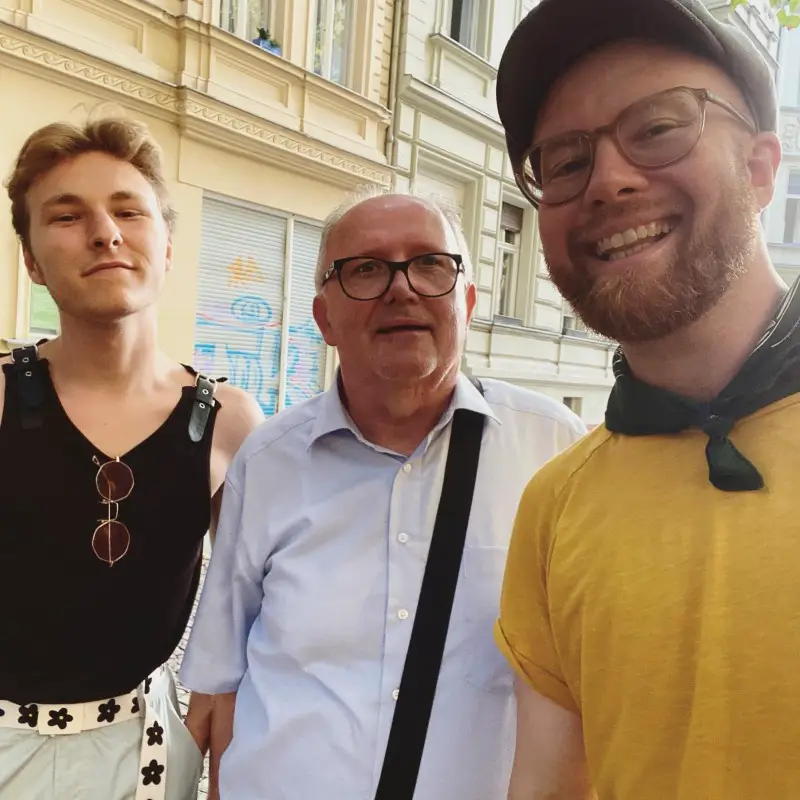
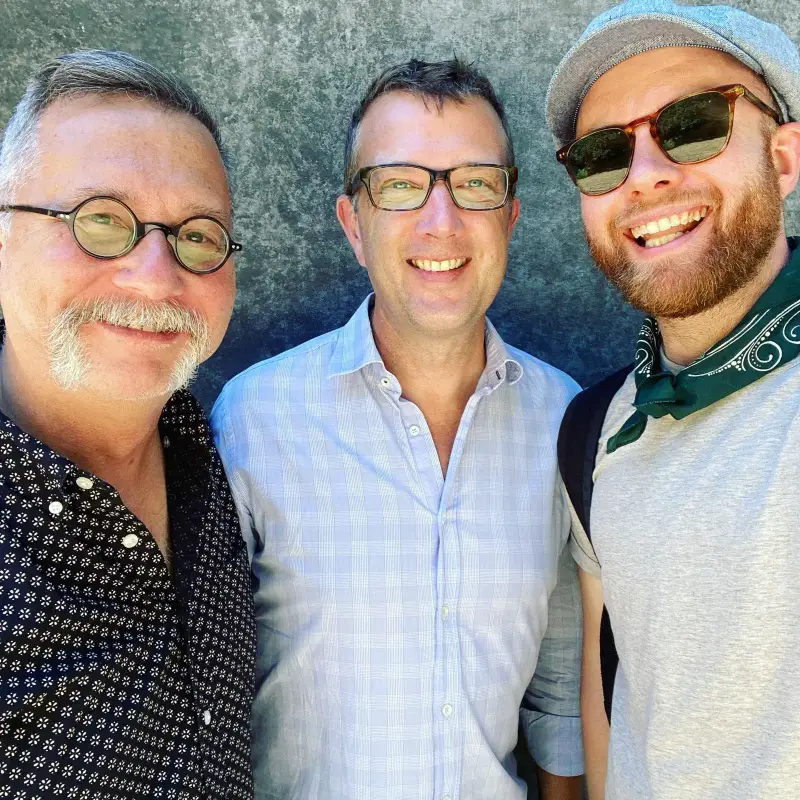
Tips for Experiencing Berlin’s LGBTIQ+ Culture
Embrace the Different Neighborhoods of Berlin
While Schoneberg, Kreuzberg, and Friedrichshain are the most famous LGBTIQ+-friendly hotspots, don’t be afraid to venture beyond these areas. Berlin is a diverse city and you will find welcoming spaces throughout. Prenzlauer Berg, for example, is known for its colorful gay and lesbian infrastructure, and Neukolln offers a burgeoning LGBTIQ+ community as well. Head off the tourist-trail and see what you come across.
Explore the Buzzing LGBTIQ+ Nightlife of Berlin
Berlin’s nightlife is epic and the LGBTIQ+ community plays a big role in it. Explore the bars and clubs that cater specifically to the community. From the legendary SchwuZ and flashy Roses Bar to the inclusive KitKatClub and panorama bar of Berghain, Berlin offers a diverse range of venues where you can dance the night away and celebrate your authentic self. Check out the weekly parties and events to make the most of your nights out.
Attend LGBTIQ+ Festivals and Events Like Pride
Plan your trip around Berlin’s LGBTIQ+ festivals to witness the spirit of love that fills the streets. Berlin Gay Pride, commonly referred to as Christopher Street Day, takes place in the second half of July every year and is one of the largest Pride parades in all of Europe – with approximately half a million attendees. The energetic parade runs from Kurfurstendamm to the Brandenburg Gate and features festive concerts from star-studded guests.
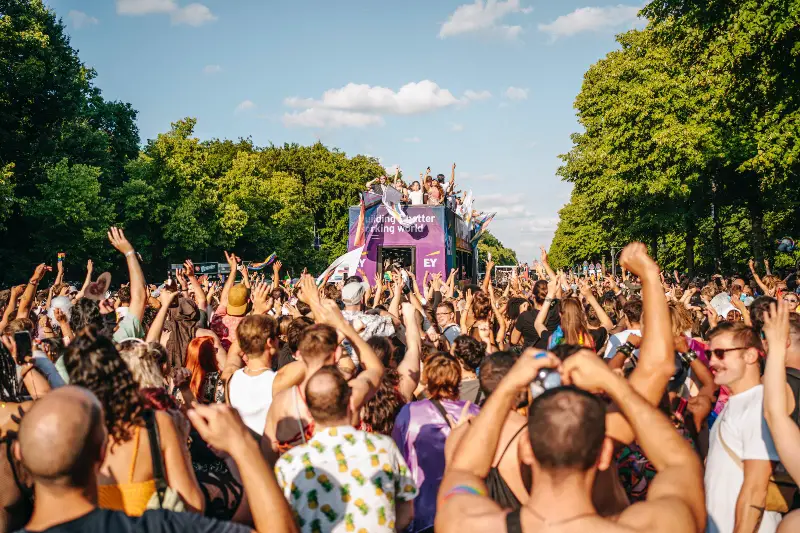
Learn the Incredible LGBTIQ+ History of Berlin
Book the LGBTIQ+ Berlin Tour with Finn Ballard to embrace the history of the German capital. Be inspired by the stories of activism, resilience and triumph. You will leave the tour with a newfound knowledge of LGBTIQ+ rights and a sense of optimism about the human spirit. It also equips you with further recommendations that you can use for the rest of your stay in Berlin – giving you insider information to discover hidden gems.
